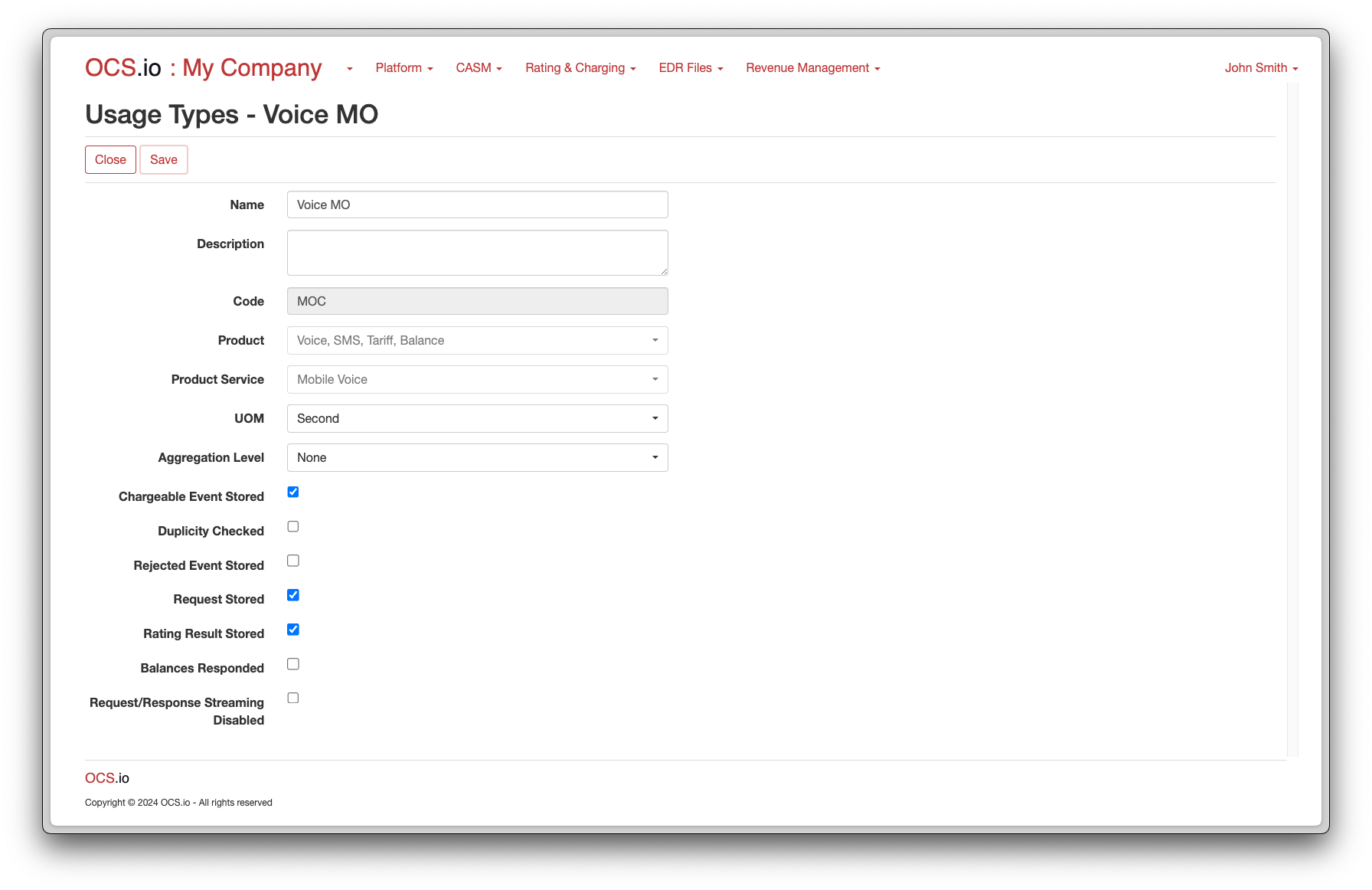Rating and Charging
Usage Types
In OCS.io, different Usage Types can be configured to handle the rating and charging of usage. Each Usage Type can have specific behavior concerning storing events, aggregation, duplicate checking, and more.
For example, you may have one Usage Type configured for rating and charging voice calls and another for rating and charging data usage. Each Usage Type can be configured with specific rules and behavior, such as storing the events for a certain amount of time, aggregating usage data over a specific period, or performing duplicate checking to prevent erroneous billing.
To configure Usage Types, follow these steps:
-
Access the Integration Configuration perspective in your system’s user interface.
-
Select the menu .
-
Click on the + (New) button to create a new Usage Type.
-
Fill in the required information in the form:
| Item | Description |
|---|---|
Name |
Enter the name of the Usage Type. |
Description |
Optionally, enter the description of the Usage Type. |
Code |
Enter the code of the Usage Type. This code is used for integrating purposes and may not be changed later. |
Product |
Select the product associated with this type of usage. This selection cannot be changed. |
Product Service |
Select the product’s service associated with this type of usage. This selection cannot be changed. |
UOM |
Choose the units of measurement for this type of usage. |
Aggregation Level |
Choose the level of aggregation for this type of usage. |
Chargeable Event Stored |
If checked, the event will be stored. |
Duplicity Checked |
If checked, duplicity checks will be performed for each event. |
Rejected Event Stored |
If checked and the event is rejected, the event will be stored. |
Request Stored |
If checked, the charging request will be stored. |
Rating Result Stored |
If checked, the result of rating with subsidiary information will be stored. |
Balances Responded |
If checked, the charging response will contain subsidiary information about balance updates. |
Request/Response Streaming Disabled |
If checked, requests and responses will not be published to the streaming platform. |

Usage Types allow you to define specific types of usage for your products and services. By configuring Usage Types, you can specify the units of measurement, aggregation level, and various settings related to event handling, storage, and processing.
Choose the appropriate Units of Measurement (UOM) that best represent the measurement units for this type of usage. This could be minutes, bytes, messages, or any other relevant unit.
Specify the Aggregation Level, which determines how usage events are aggregated for reporting and charging purposes. You can choose from various levels such as hourly, daily, weekly, or custom intervals.
Configure the remaining options based on your specific requirements. These options include storing chargeable events, performing duplicity checks, storing rejected events, storing charging requests and rating results, responding with balance information, and enabling or disabling request/response streaming.
Ensure to select the appropriate settings and configurations that align with your rating and charging processes and the desired behavior for